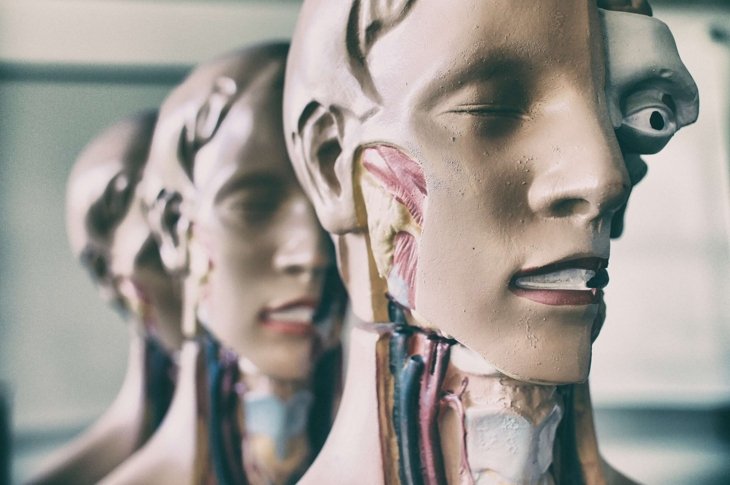
Many of us have a vague idea of what “detox” means when it comes to our bodies—a hazy notion of “bad stuff” being whisked away … somehow.
But what about the nitty-gritty? Is detox just one process, or many? What are some of the most important detoxifying organs? And can we really support them while they rid our bodies of toxins?
Read on to find out.
The liver
One of the largest organs in the body, the liver has more than 500 important metabolic functions. It converts nutrients into substances the body can use, stores these substances, and, when they’re needed, supplies our body’s cells with them. Think of the liver as your internal Postmates HQ!
The liver also breaks down fats and produces energy. And plays a role in blood clotting, as well as keeping blood sugar levels stable. Andddd converts toxins into harmless substances or makes sure they’re released from the body.
Liver detox helpers
Prevention is the top detox strategy, especially when it comes to the liver. Using alcohol responsibly is important, as is maintaining a healthy weight. (Both alcohol and obesity are linked to liver disease.)
Liver cleansing can be supported by many herbs and supplements.
Milk thistle (Silybum marianum) a powerful herb for liver detoxification, encourages regeneration while protecting liver cells from damage.
Dandelion root (Taraxacum officinale) cleanses and nourishes liver cells, promoting better production and movement of bile, which in turn helps fat metabolism and general bowel function.
Artichoke leaf (Cynara scolymus) extract helps the liver metabolize lipids (fats), which reduces bloating.
The kidneys and bladder
These organs are a vital avenue for toxin elimination. One of the most important functions of the kidneys is to filter and then secrete waste products through the bladder by way of urine. To do this, our kidneys rely on adequate hydration, so drinking plenty of water is essential to kidney health. (Maybe you should pour a glass of water before you read any further? Just sayin’.)
Kidney detox helpers
Being aware of risk factors for kidney disease is important. The leading cause is diabetes, so maintaining a healthy weight and controlling blood sugar levels is important.
Drinking kidney-cleansing herbal teas is an easy and refreshing way to help support this essential detoxifying organ.
Stinging nettle (Urtica dioica) has some incredible detoxifying properties. It contributes to the detoxification of the urinary tract, and it also contains histamine that (somewhat counterintuitively!) may help with the symptoms of seasonal allergies, like sneezing and a runny nose. Dried nettle leaf tea can be found in many health food stores.
Dandelion root (Taraxacum officinale) has been shown in studies to help improve liver, gallbladder, and intestinal health. It’s a natural diuretic, meaning it helps the kidneys excrete water and salt. Plus, dandelion contains potassium, which synthetic diuretics tend to deplete.
Goldenrod (Solidago virgaurea) has been studied for its ability to reduce inflammation, relieve muscle spasms, fight infections, and lower blood pressure. Its use as a diuretic is valuable when our kidneys need a little help. You could say it’s pure detox gold.

The lungs
When we breathe in life-giving oxygen, our lungs filter out the unwanted CO2, along with fumes, mold, allergens, and airborne toxins. Our lungs naturally detoxify when we inhale and exhale deeply.
Lung detox helpers
Prevention is an important start:
- quit smoking (and avoid second- and third-hand smoke)
- avoid artificial scents (in air fresheners, candles, and many household cleaners)
- get outside in nature to breathe fresh air
Botanicals have been used traditionally for lung cleansing. Some of these include
- lotus root tea
- wild cherry
- licorice root
- fenugreek
- mustard plasters
Purify indoor air by changing the filters in your house’s ventilation and furnace systems and by cleaning your vents.
Try breathing exercises where you take in a deep breath through your nose and then breathe out through pursed lips as if you’re whistling. This type of breathing has the added benefit of being relaxing too. Win-win.
Detoxing with CBD oil
You’ve probably heard that CBD (cannabidiol) has been shown in studies to help relieve everything from pain to anxiety.
But there’s another benefit to using hemp-derived CBD oil that most people aren’t aware of: It can help your body detox. Here are three ways CBD supports your natural detox mechanisms.
-
CBD acts as an antioxidant
Many detoxifying regimens are aimed at giving your body a break from consuming food-based toxins (hello, lemon-cayenne cleanse), but CBD oil helps combat toxins produced by your own body. Research shows that CBD is a potent antioxidant that can neutralize the cell-damaging effects of free radicals, which are chemicals that are generated when your body converts food to energy, when you exercise, and in response to environmental triggers like cigarette smoke and air pollution. Since free-radical damage has been linked to a range of diseases, from cancer to Alzheimer’s, counteracting these toxins is essential.
-
CBD encourages homeostasis
CBD interacts with your body’s endocannabinoid system (ECS), which is basically a network of cell receptors spread throughout your brain and body that governs whole-body balance, or homeostasis. CBD indirectly influences ECS receptors, enhancing homeostasis functions like inflammation regulation and digestion. Research shows that one of the ECS’s functions is turfing large, damaged molecules that can accumulate from aging. Since CBD oil helps the ECS run smoothly, it may support the ECS in ridding your body of that toxic buildup.
-
CBD could help you catch more zzzs
Promising research, along with an abundance of anecdotal evidence, points to the effectiveness of CBD as a sleep aid. And guess what? Quality sleep is critical for detox. While you sleep, your brain gets rid of waste byproducts that have formed throughout the day. That nocturnal work is performed by the glymphatic system (not to be confused with the lymphatic system)—a recently discovered system that flushes out toxins specifically from the brain.
– Sarah Ban
The lymphatic system
Miles of lymph vessels run throughout our bodies, between our tissues, and around all our important structures. These vessels are much like blood vessels, only they transport a clear fluid called lymph, which is full of important immune cells. The lymphatic system gathers and removes cellular waste, keeps fluid levels in check, and transports much-needed nutrients to their destinations.
Obviously, this is one majorly important system, and keeping it healthy will have a big impact on your body’s health and overall function.
Lymphatic system detox helpers
Unlike the circulatory system, which has the heart to push blood along, the lymphatic system doesn’t have its own pump. It relies on the pumping action of muscles and vessels nearby to help move the lymph along. So it’s important to keep moving! Staying physically active and using your muscles helps to move lymph efficiently.
Dry brushing is often recommended as a naturally relaxing way to stimulate movement in the lymphatic and circulatory systems, which is thought to help rid the body of toxins more quickly.
Lymphatic drainage massage can be used to push stagnant lymph out of an area and ease swelling. Cases of swelling due to injury, like ankle sprains, muscles strains, and other situations where areas are left painful and puffy, are said to benefit from improved flow of nutrients in and waste matter out of the area, allowing the tissues to heal more efficiently.
The colon
Part of the body’s cleanup crew, the colon takes out water from the food we eat after the food’s been partially digested in the small intestine. The colon, often called the large intestine or the large bowel, then further breaks down the food in preparation for elimination.
Colon detox helpers
Following a healthy, fiber-rich diet with lots of vegetables and staying hydrated with plenty of fluids is a must for colon health. When your colon needs a little help, though, there are a few strategies you can try.
Probiotics help create a more diverse bacterial environment in the colon, which helps to smooth out the final digestion processes. Your local health food store carries a wide variety of probiotic supplements.
Psyllium husk is a soluble dietary fiber that acts as a mild laxative for constipation, but it can also help bulk up stool in cases of diarrhea. When water is added to psyllium husk powder, it creates a gelatin-like consistency that helps move waste from the colon.
Herbal teas can help ease digestion and get the body’s waste system moving smoothly. Digestive aid teas typically contain herbs like these:
- senna (Senna alexandrina)
- peppermint
- ginger
- licorice root (Glycyrrhiza glabra)
- marsh mallow root (Althaea officinalis)
- chamomile
Ready for a cuppa?
This article was originally published in the May/June 2020 issue of alive US, under the title \”Detox Explained (Finally!) \”















